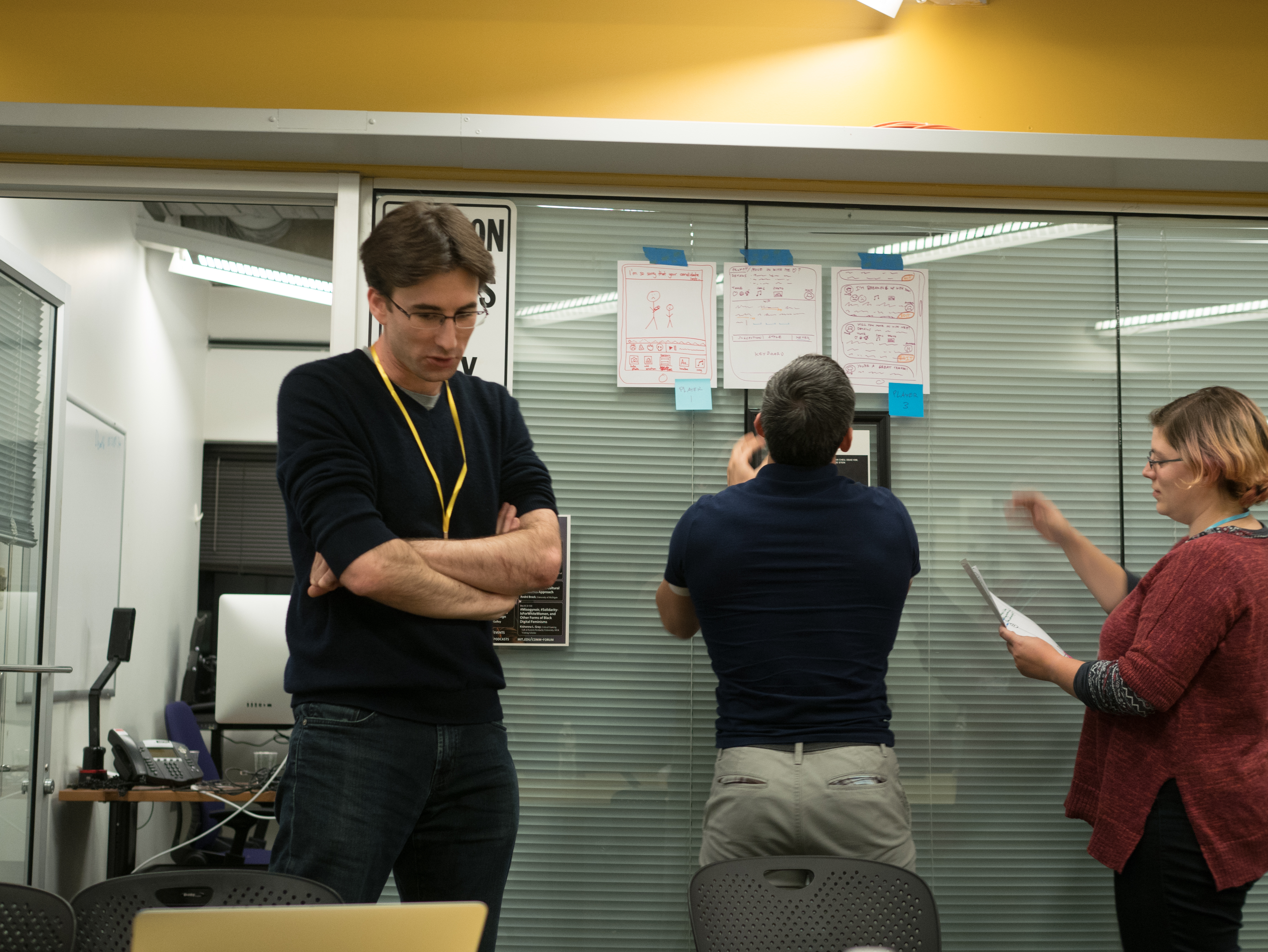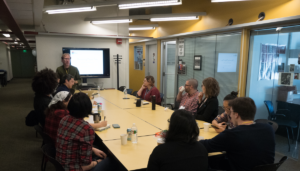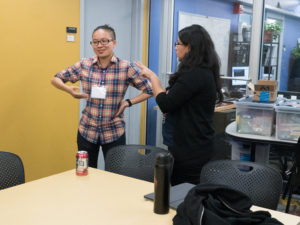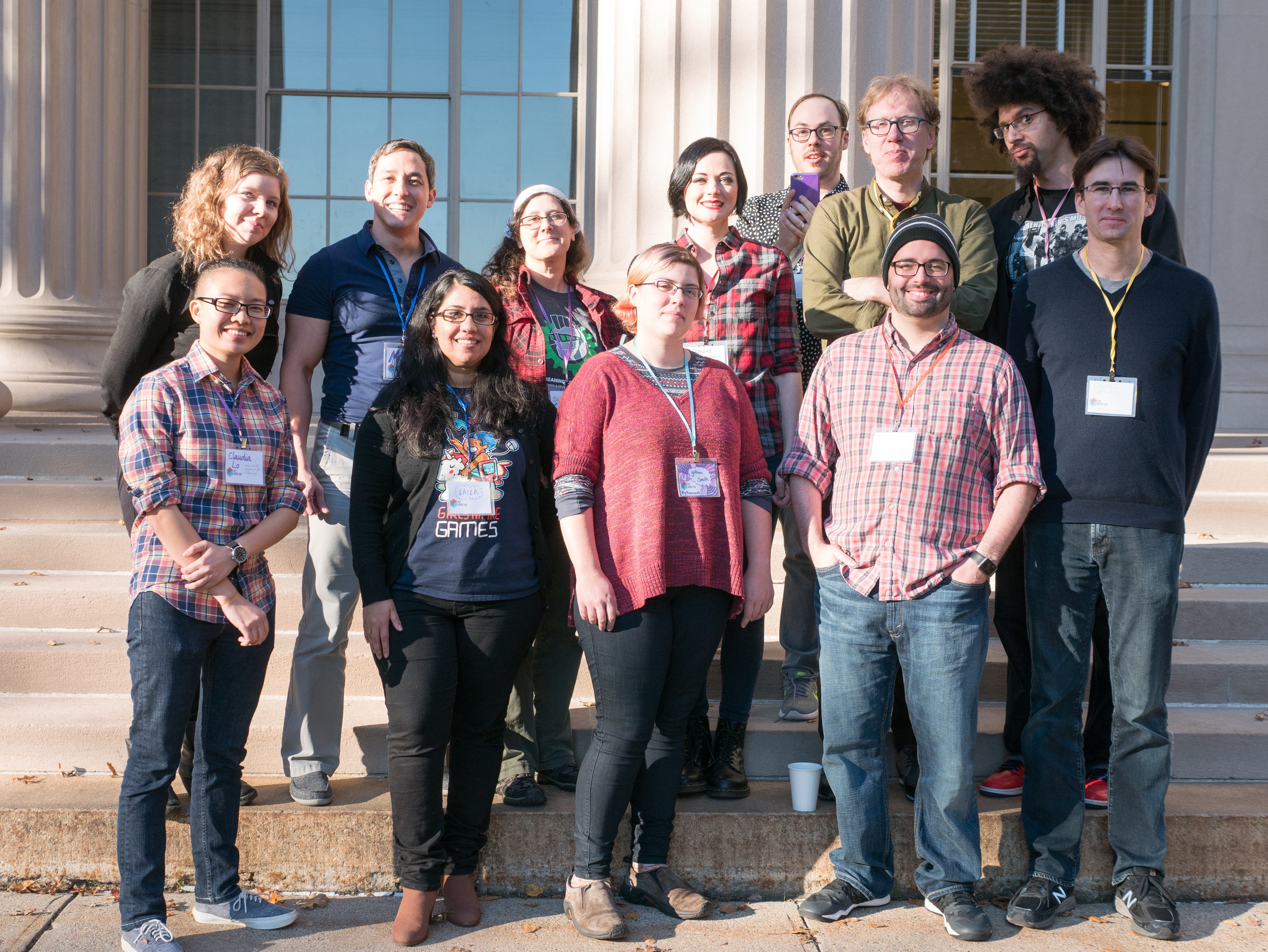Recasting Player Two Workshop #2: Dynamics of Involvement in Cooperative Play

The Recasting Player Two project aims to find ways for academia to collaborate with the development community to promote diversity and equity in game development and gaming culture. In particular, we’re interested in the gendered dynamics of co-located cooperative games; in order to tackle a series of gendered issues in current design practices, we have hosted two workshops bringing together people from the game development community to prototype games and discuss these issues. We wrote about the first workshop Boston Game Maker’s Guild Workshop.
The second Recasting Player Two workshop took place on November 18th at the MIT Game Lab. Building on insights from the first workshop, we resolved to bring together a diverse group of game industry professionals, developers and academics to tackle the more specific issue of passive play and asymmetrical cooperative games. We opened the day by asking our attendees: how can we create games that afford different levels and types of interaction, investment, difficulty and specialization? And in doing so, how can we create more inclusive spaces not just for women, but for other underrepresented groups in gaming as well?

During the round table discussion that followed, we identified several key ideas – game mechanics we wanted to consider, problems we hoped to solve, player types we wanted to design for – that we then used to split into four groups of three to four people based on interest. Groups were told to present, after three hours of work, a concept for a video game based on the interests they identified. Groups were given materials for physical prototyping, but were encouraged to focus on the core idea of their game, not on making a playable demo.

At the end of this session, we reconvened and presented our ideas. Common to all the groups was a desire to rethink the primacy of player one in cooperative games, but each group approached this problem differently, creating an interesting mix of concepts.
One group presented a collaborative poetry creation game in which players could adopt different roles to together write and edit poems; they hoped to break down problematic social structures that privilege certain play-styles by cultivating the shared emotional experience of poetry writing. Another group considered spectatorship, its unique pleasures, and the ways it can become a game of its own; they presented a game in which spectators can intervene in game worlds by adding obstacles and changing maps. The third group structured their game around the sharing of tasks between players, who could choose to make later jobs easier by doing different tasks earlier in the game. The final group intervened into single player branching narrative games by conceptualizing a game in which while player one controls branching dialogue choices, other players control the arms and hands of the protagonist, forcing player one to be accountable for their decisions and sometimes affecting the branching narrative itself.
We are very satisfied with the outcome of the workshop – not only did participants come up with creative solutions to some of the issues we have been considering, but many interesting discussions about games culture, the games industry and the role of academia going forward were had. But we also learned some important lessons. We’re looking forward to using what we learned this time around to organize future workshops and projects.
This post was written by workshop facilitator Kaelan Doyle Myerscough, with some input and additions by the project leader Mikael Jakobsson. Photos by Rik Eberhardt. Funding for Recasting Player Two has been provided by ReFiG. Thank you to all our participants!

